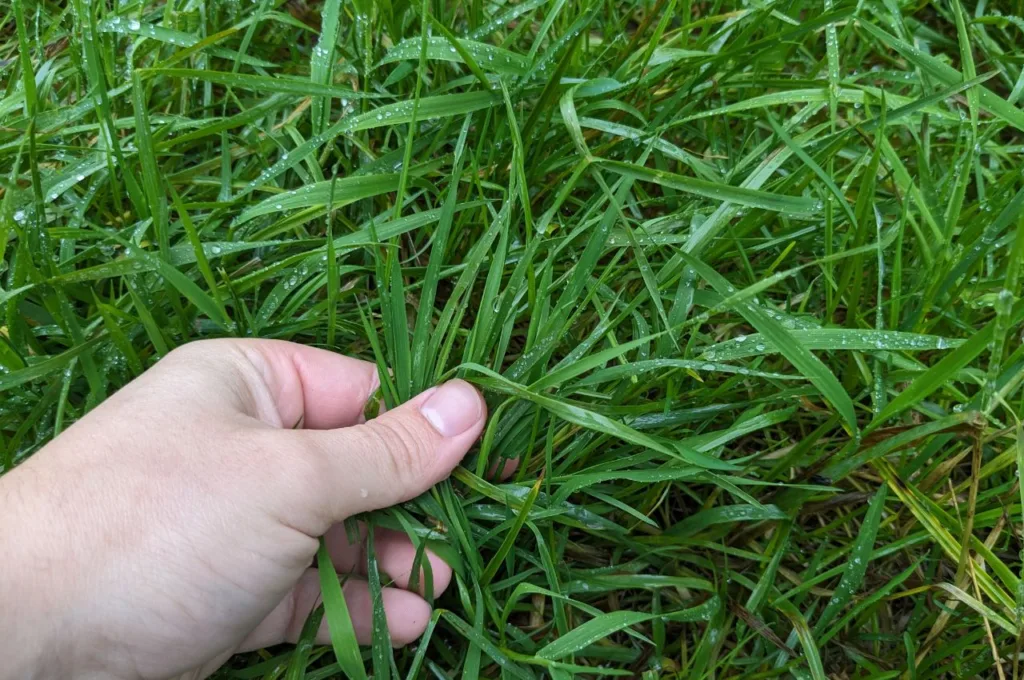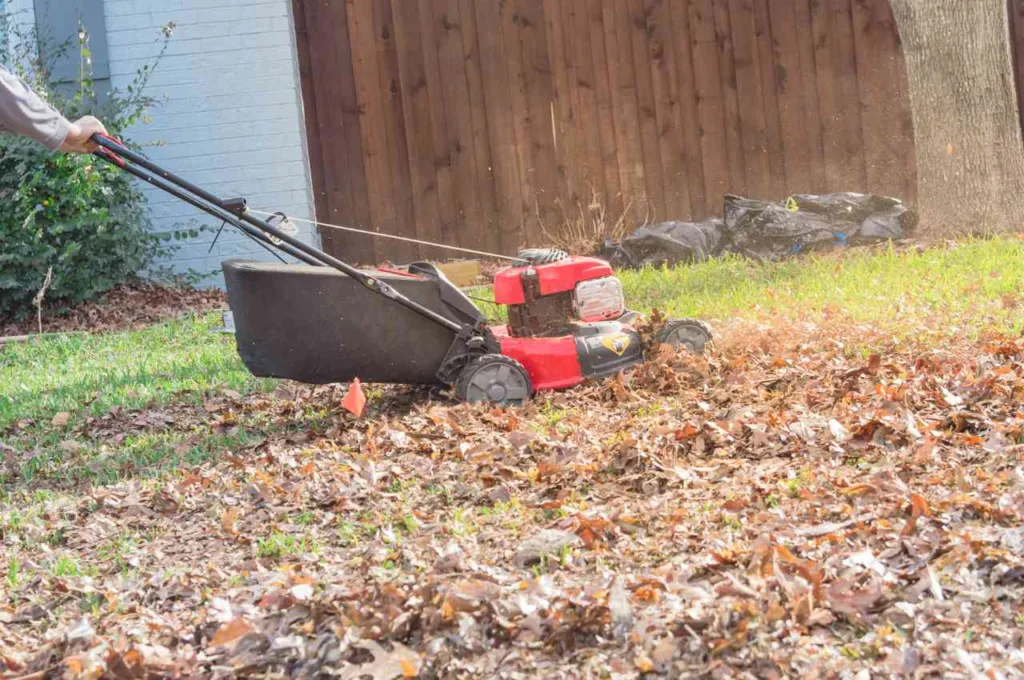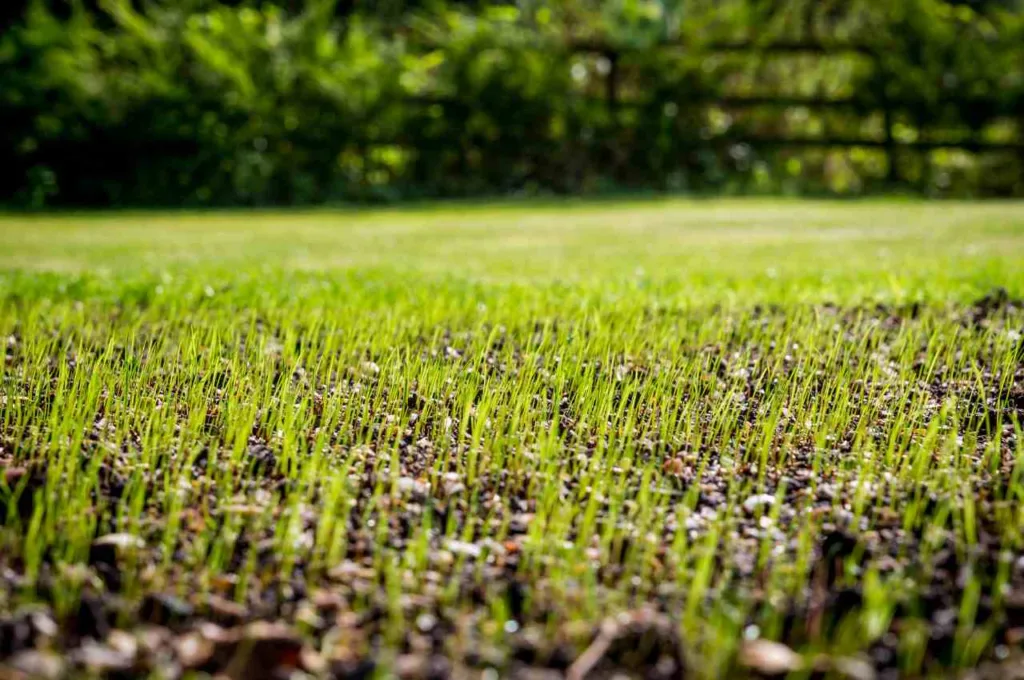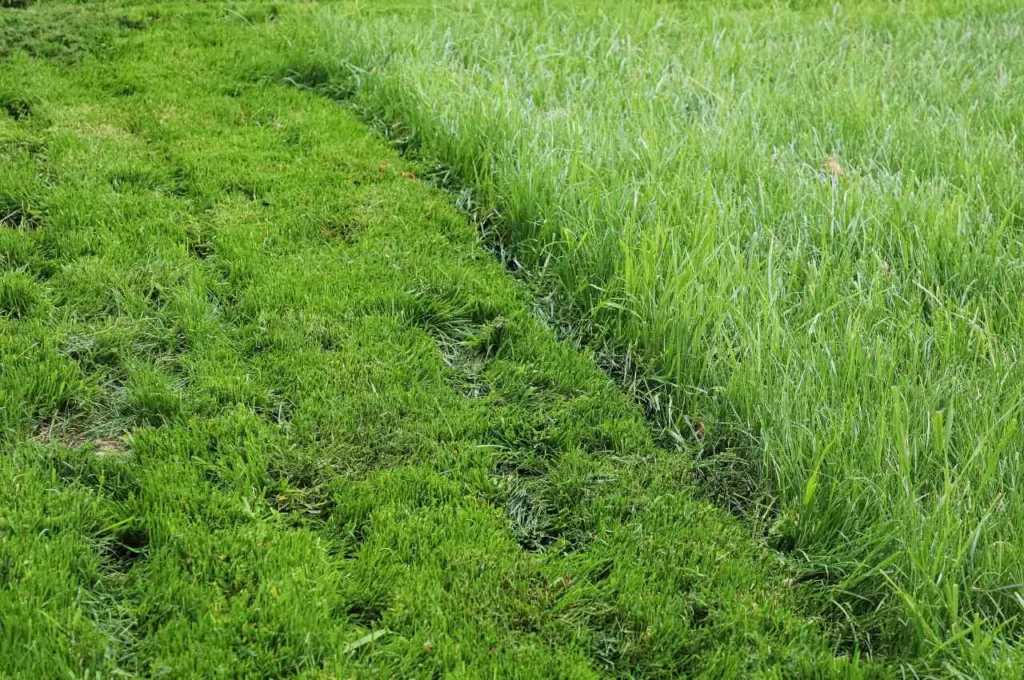If you’ve got a mulching mower, you probably try to use the mulching function as often as possible. Given that mulching your grass clippings eliminates the hassle of emptying your mower’s grass box and encourages healthier grass growth, it’s a win-win.
But that’s not to say that mulching is the only feature you should ever use on your mower. I’ve owned a few different mulching mowers by Hyundai, Bosch, and Greenworks, and I’ve identified that there are certain situations where it’s best to bag your grass clippings instead of mulching. I’ve shared these in the article below.
✅Key Takeaways:
It’s best to only use a mulching lawnmower during the growing season (May to September) when you have dry grass and when you’ve established a regular mowing routine.
In the right conditions, mulching your grass saves you the effort of emptying your mower’s grass box, and the tiny pieces of grass supply your lawn’s soil with nutrients, encouraging healthy growth.
Avoid lawn mulching if:
Your lawn is overgrown
Your grass is wet
Your lawn has disease or weeds
There’s excessive leaf debris
You don’t like the look of mulched grass cuttings
If your lawn is still new
There’s a thick layer of thatch
Table of Contents
📑 7 Times When You Shouldn’t Mulch Your Grass Clippings
Mulching lawn mowers are just like normal mowers, except they have a special mulching blade that produces “mulch clippings” – essentially smaller grass cuttings that can be left on your lawn to decompose, providing nutrients to the soil to help your lawn stay healthy.
Here are the 7 times when I advise bypassing your mulching equipment and using your mower’s collection bag instead of mulching:
📏 Your Lawn Is Overgrown
If your grass has grown very tall, using a mulching mower isn’t a good idea. The mower will end up mulching too much grass, causing clumps of grass to get left behind. Ideally, the mulched lawn clippings should be a thin layer, not clumps, so they can decompose quickly. In this case, it’s better to collect the clippings to prevent thatch buildup and ensure an even cut.
☔️ Your Grass Is Wet
If you’ve ever mown wet grass, you’ll know what happens: the grass blades stick together and form clumps. Mowing damp grass is enough of a nightmare when you’re collecting the grass in your mower’s grass box, but if you try to mulch, you’ll end up with clumps of clippings that don’t break down effectively. These clippings will smother the grass underneath, potentially causing it to turn brown. Again, collecting the clippings is the best choice in these conditions.

🍀 Your Lawn Has Disease Or Weeds
If your lawn is currently affected by diseases or weed infestations, I advise collecting the clippings rather than mulching them. This will help you prevent the spread of whatever disease your lawn is dealing with, and stop weed seeds from being dispersed to other parts of your lawn (a likely outcome of mulching). Deal with the problem at hand before you decide to mulch!
🍂 There’s Excessive Leaf Debris
It’s fine to mulch your lawn if there are only a few leaves here and there – and, in fact, decomposing leaves can provide additional nutrients to your lawn, so they’re a good mulch material. But if your lawn is littered with leaves, you’ll likely end up with an overly thick, dense layer of leafy mulch as a result of using a mulching mower. In this case, it’s best to collect the debris, or at least rake up most of the leaves prior to mulching, to prevent them from smothering your mown grass.

👀 You Don’t Like The Look Of Mulched Grass
Not everyone likes to leave clippings on their lawn. Even if you’re a lawn care fanatic, you might prefer your lawn to have a neat, manicured appearance with no visible clippings. That reason alone might be enough for you to decide against mulching your lawn clippings.
🌱 Your Lawn Is New (From Seed)
If you’ve recently grown a new lawn from seed, it’s best to avoid using a mulching lawnmower for the first few months. To begin with, your lawn might be too delicate to withstand even a light coating of grass clippings. My advice is to mow your lawn with a conventional mower on at least 3-4 occasions before you consider mulching.

🍃 There’s A Thick Layer Of Thatch
Thatch is a layer of organic matter that forms on the soil surface of a lawn. It typically consists of dead grass, roots, and other organic debris, which accumulate over time, especially if your lawn has poor drainage or aeration, or you’ve overused fertilizer containing a lot of nitrogen. It’s best not to use a mulching mower on a lawn with excessive thatch (more than 1-2cm) because it’ll prevent contact between the mulched clippings and the microorganisms in the soil, affecting their rate of breakdown.
🤷♂️ What’s The Optimal Situation For Mulching Grass Clippings?
So, now we’ve covered when you shouldn’t mulch your grass clippings, you might be wondering about the optimal situation for mulching cut grass – aka the very best circumstances for mulching.
From my own experience and my research into how mulching grass in different conditions might affect your lawn, I’ve found that the best time to get your mulching mower out is when:
Your lawn is dry. Ideally, it hasn’t rained in the last couple of days at least. Also watch out for morning dew – you don’t want wet grass at all, regardless of the cause.
It’s spring or summer. During these warmer months, the mulched grass clippings will decompose at a faster rate compared to in the colder, damper October-November period. That makes the spring and summer seasons the best time for mulching grass cuttings because you won’t end up with a lingering layer of smelly grass on your lawn.
When you’ve established a regular mowing routine. If you want to use your mulching lawn mower, make sure to mow often enough to prevent your lawn from getting overgrown. Ideally, your grass should be no taller than 6cm if you’re mulching. Assuming that you follow the one-third mowing rule, this will ensure that the mulched grass cuttings aren’t too long or dense to decompose quickly.
So, to summarize: mulch your lawn when it’s dry, the weather is warm, and you’ve got into a regular lawn mowing routine. Keep these three things in mind when you’re deciding whether or not to use your mulching mower, and you shouldn’t go wrong.

🏁 Final Word
I wrote this guide because I couldn’t find any other articles that specifically discussed when you shouldn’t mulch your lawn. There’s a lot of contrasting information online about mulching grass in general, and hopefully, this guide has served as a useful resource for you and helped you to understand when it’s best to mulch, and when you should use a regular lawn mower (or your mulching mower without the mulching plug).
